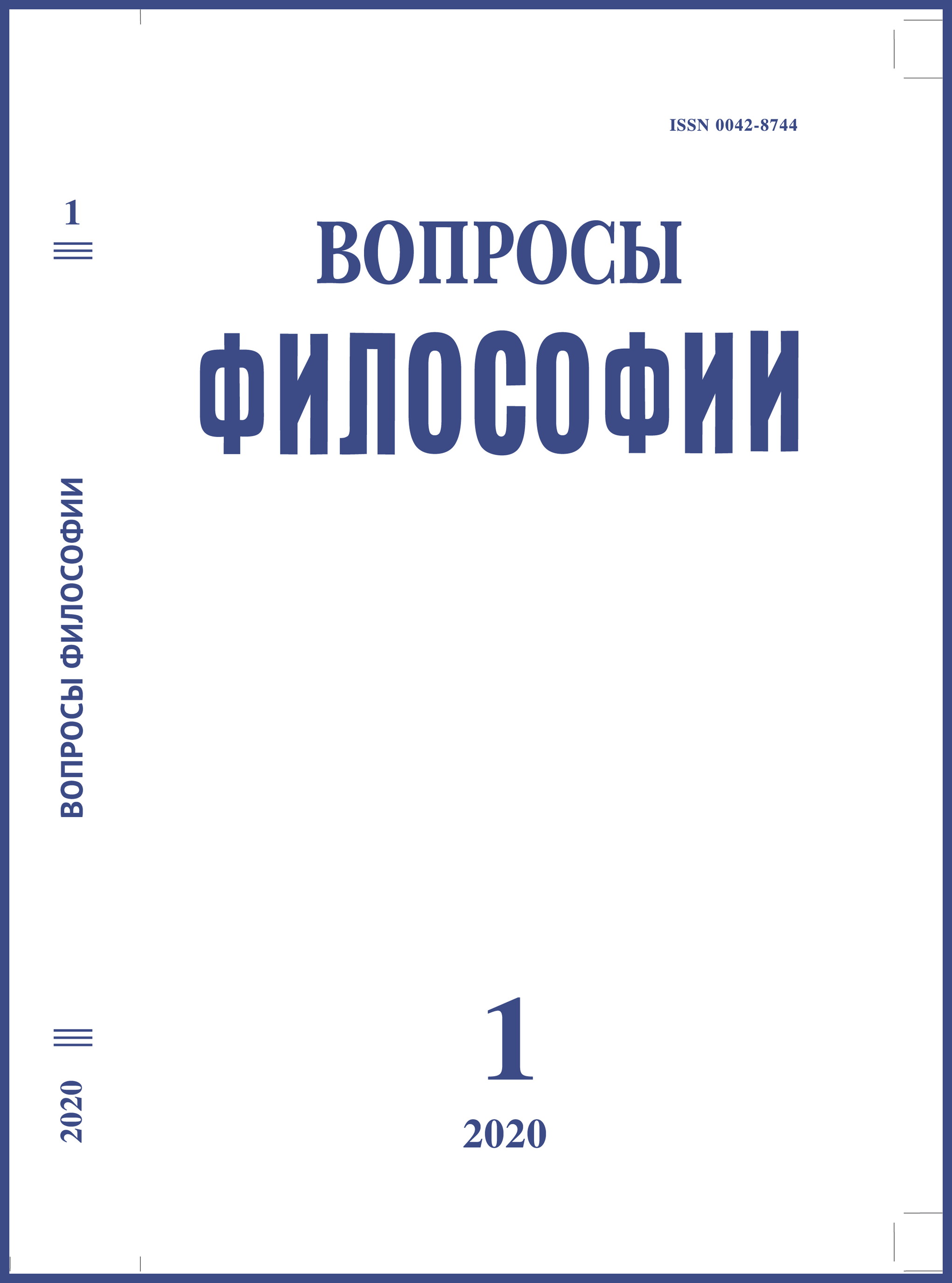Vladimir S. Bibler and the Principle of Logic
DOI:
https://doi.org/10.21146/0042-8744-2020-1-104-113Keywords:
V.S. Bibler, Hegel, logic, science, dialogue.Abstract
Based on the recognition of the historical conditionality of various cultures, V.S. Bibler (1918‒2000) concludes that there are significant differences in the methods of philosophical reasoning and philosophical logics. Distinguishing ancient and
medieval logics, he draws a legitimate conclusion about the existence of philosophy in the 17th – 20th centuries as science: it relied on science and perceived some of its attitudes and logical principles – ascent, withdrawal, orientation to experiment. Of particular note is the understanding of Hegelian logic as the highest stage of the philosophy of science. Highly appreciating the magnificent picture drawn by Hegel of the movement of the knowing mind, Bibler is convinced that this mind and its logic for Hegel, as well as for many other philosophers, are the only ones possible for all time. Bibler explains the identification of philosophical logic with science by Hegel by the fact that for three centuries, science has occupied a central place in European spiritual wealth and its mind seemed the only kind of understanding. At the same time, Bibler draws attention to the fact that at the highest point of the logical movement of the mind, which Hegel considers the completion of cognition, he himself proposes to understand this situation. But understanding is not knowledge, but this means that Hegel, along with one mind, the mind of knowledge, introduces the other, and it is precisely where one ends and turns into the other that both exist side by side. For Bibler, this conclusion confirms his many years of philosophical search for the justification of the idea of dialogism of minds, a new logic – dialogue. Here, M.M. becomes his powerful supporter. Bakhtin with recognition of the dialogue of cultures. Bibler finds out the characteristics of the new logic on the basis of a deep study of the modern social situation, requiring mutual understanding of different peoples and cultures, as well as focus on the initial definitions of being – humanism, dignity, the meaning of life. As a result of many years of difficult philosophical reflection, Bibler substantiates the thesis that a new logic, the logic of culture, not science, is emerging that corresponds to the 20th century, and thus sets the direction for mod ern philosophical research.

